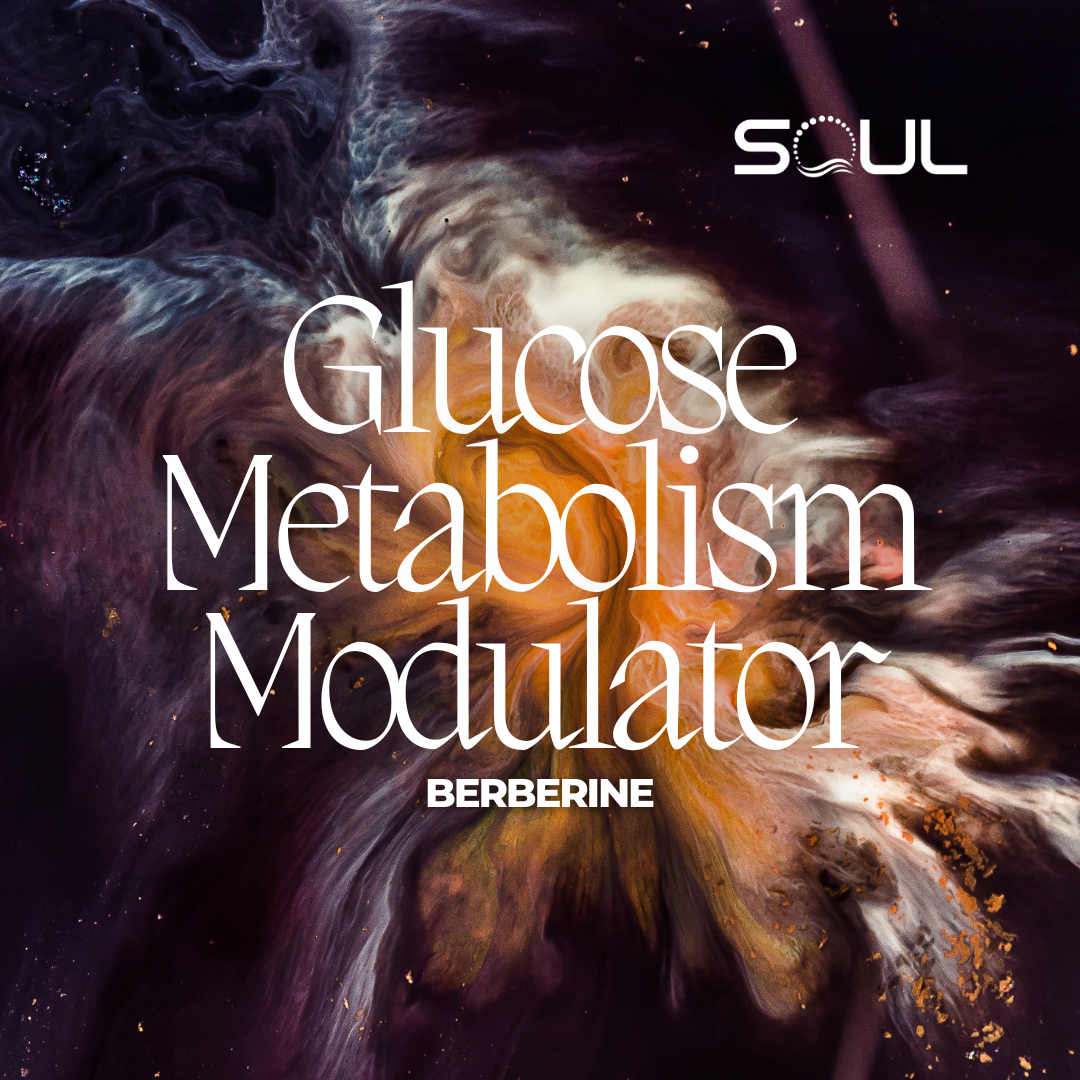
Berberine: Unveiling the Molecular Magic of an Ancient Remedy
Share
For centuries, berberine has been more than just a compound—it's been a cornerstone in the tapestry of traditional medicine. Today, as we stand at the intersection of ancient wisdom and modern science, berberine is capturing the attention of researchers worldwide. Its complex chemical structure and potential health benefits make it a subject worthy of exploration.
Natural Sources: The Roots of Berberine's Legacy
Berberine is not just a product of modern laboratories; it's a gift from nature, abundantly found in several plants:
- Berberis vulgaris (Barberry): A shrub that's been a herbal staple for digestive and immune support.
- Coptis chinensis (Chinese Goldthread): A golden thread in traditional Chinese medicine, renowned for its antimicrobial properties.
- Hydrastis canadensis (Goldenseal): Native to North American forests, utilized by indigenous peoples for its medicinal virtues.
These plants have been the vessels carrying berberine through the ages, each contributing to its storied legacy.
Deciphering the Molecular Language of Berberine
Berberine's impact on the body is a symphony of molecular interactions. Let's unravel how it orchestrates these effects:
1. Mitochondrial Function: Igniting the Cellular Powerhouse
At the heart of cellular energy lies the mitochondria. Berberine activates AMP-activated protein kinase (AMPK), often dubbed the body's "metabolic master switch." By turning on AMPK, berberine enhances mitochondrial function, promoting efficient energy production and utilization.
2. Glucose Metabolism: Balancing the Blood Sugar Scales
Berberine's influence on glucose metabolism is a beacon of hope for managing type 2 diabetes. It enhances insulin sensitivity and stimulates glucose uptake in cells. By modulating key enzymes involved in glucose pathways, it helps maintain balanced blood sugar levels.
3. Lipid Metabolism: Navigating the Cholesterol Channels
High cholesterol is a well-trodden path to cardiovascular issues. Berberine intervenes by inhibiting lipid synthesis and increasing LDL receptor expression, which aids in clearing "bad" cholesterol from the bloodstream. This mechanism contributes to its potential cardiovascular benefits.
4. Anti-Inflammatory Properties: Calming the Cellular Storm
Inflammation is the body's double-edged sword—essential for healing yet harmful when chronic. Berberine modulates inflammatory pathways, such as NF-κB, reducing the production of pro-inflammatory cytokines. This action positions it as a candidate for managing various inflammatory conditions.
The Hypothetical Pathways
While we know berberine activates AMPK, the journey doesn't stop there. There's a hypothesis that berberine may influence gene expression by interacting with DNA and RNA. It could also modulate the gut microbiota, leading to systemic effects on metabolism and immunity. These conjectures fuel ongoing research, painting a picture of berberine as a multi-targeted agent.
Precautions and Considerations: Navigating the Terrain Safely
Every powerful compound requires respect and understanding. Here's what to keep in mind with berberine:
Drug Interactions
Berberine may interact with medications metabolized by the CYP450 enzymes. This interaction could alter the effectiveness of certain drugs, such as anticoagulants or immunosuppressants. It's crucial to consult healthcare professionals before combining berberine with other medications.
Side Effects
Gastrointestinal discomfort is the most commonly reported side effect, particularly at higher doses. Symptoms may include cramping, diarrhea, or constipation. Starting with a lower dose and gradually increasing it under professional guidance can mitigate these effects.
Conclusion: Bridging Tradition and Science
Berberine presents an intriguing narrative—a blend of ancient remedies and cutting-edge science. Its multifaceted mechanisms offer a glimpse into how natural compounds can impact our health on a molecular level. As research progresses, berberine may well become a significant player in holistic health strategies.
These statements have not been evaluated by the Food and Drug Administration. This product is not intended to diagnose, treat, cure or prevent any disease. This article is for informational purposes only and is not a substitute for professional medical advice. Always consult your healthcare provider regarding any health concerns or before starting new supplements.
